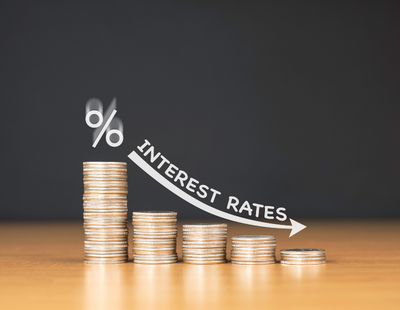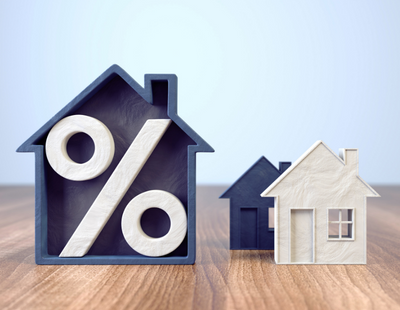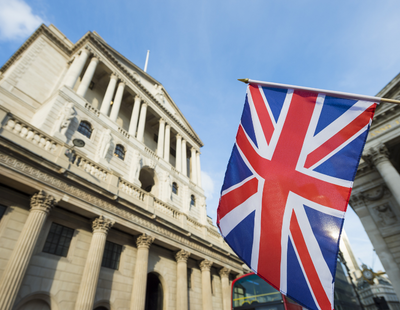“Country markets, where there have been rapid price increases since the pandemic, are now cooling in terms of demand. Although demand is easing in London where prices have remained fairly static, it still remains ahead of 2021.”
He said Winkworth expects the interest rate increase and wider economic concerns to impact on demand, but predicts London markets will outperform this trend, remaining positive through the autumn.
Agace added: “In both cases, there is sufficient underlying demand, headroom in interest rates and a strong enough labour market to allow several more rises before there will be concerns about price corrections.
“So far, we are seeing an easing rather than seeing a cause for concern. We would expect the slow trajectory of interest rates with five year mortgages cheaper than two year fixes to lead us this way."
Gráinne Gilmore, head of research at Zoopla said the high levels of demand will continue to sustain the property market.
She said: “Even with five base rates since December last year, buyer demand in the housing market has remained strong all through the start of this year, and is still 50% above the five-year average - so those looking to sell should consider making a move while demand is at this level.
“With further interest rate rises on the cards in the coming months, and a cloudier economic outlook, buyer demand will ease through the rest of 2022."
Jason Tebb, chief executive of OnTheMarket, suggested that even with another quarter-point rise, interest rates remain relatively low.
He said: “We are gradually moving towards a more rebalanced market in terms of supply and demand, with evidence emerging of a rise in the number of new instructions.
“Yet this will take time and until then, the ‘new normal’, an elevated version of the pre-pandemic market continues. Regional differences are also a consideration, with ‘one size does not fit all.'
“As long as buyers remain confident about obtaining the mortgages they need and being able to afford them, modest increments in rates, while unwelcome, are unlikely to result in a slamming on of the brakes. It remains the case that many buyers simply need to move.”
Alex Lyle, director of estate agency Antony Roberts, added: “Interest rate rises have yet to make a significant impact on our market but in six months’ time, it might be a different story if there have been several further increases.
“Those relying on a mortgage may feel differently, some buyers who have taken a while to find a property are finding that the mortgage rate they were initially quoted has doubled.
“They are revisiting their budgets, which will impact what they can buy, particularly for first-time buyers.
“Likewise, those who have reserved a decent mortgage rate are panicking that they won’t get the deal across the line in time to be able to take advantage of it.
“The price of petrol and diesel, as well as the cost of living, is adding fuel to the fire. At some point, the culmination of these higher costs across the board will bite.”
In contrast to agency comments, mortgage brokers and commentators seem more keen to get buyers to secure deals while they are cheap and, essentially, while they can.
Simon Gammon, managing partner for Knight Frank Finance, said: “Lenders are already repricing their product lines rapidly, often as much as twice a week. All are swamped with applications to remortgage, so are repricing both because interest rates are rising and because nobody wants to be the cheapest on the high street for fear of being overwhelmed.
“This means in many cases we are seeing mortgage rates rise faster than interest rates.
“Homeowners with a mortgage up for renewal or borrowers looking to buy should act now, because waiting just a couple of months is likely to mean hundreds of pounds extra in interest payments each month.”
Karen Noye, mortgage expert at Quilter, said the market could get tougher for first-time buyers but it may also bring more properties to the market.
She said: “Lenders since the financial crash have had to do much more rigorous affordability stress tests on borrowers but the current fiscal climate could still derail some homeowners or at least make them think it might be better to downsize to lower monthly outgoings.
“This will bring more properties to market and the laws of supply and demand dictate that that could mean we see house prices at the very least stall if not cool down.
“Once again, the biggest losers are first time buyers. They face a steep uphill battle to get on the housing ladder having to contend with rising interest rates, which make mortgages less affordable, inflation eating away at their deposits and the rest of the cost-of-living pressures.
“With wages failing to keep up with runaway house prices this is likely to be one of the most difficult times in the last few decades, if not longer, to be trying to get your foot on the housing ladder.”
















.png)


.png)



Join the conversation
Be the first to comment (please use the comment box below)
Please login to comment